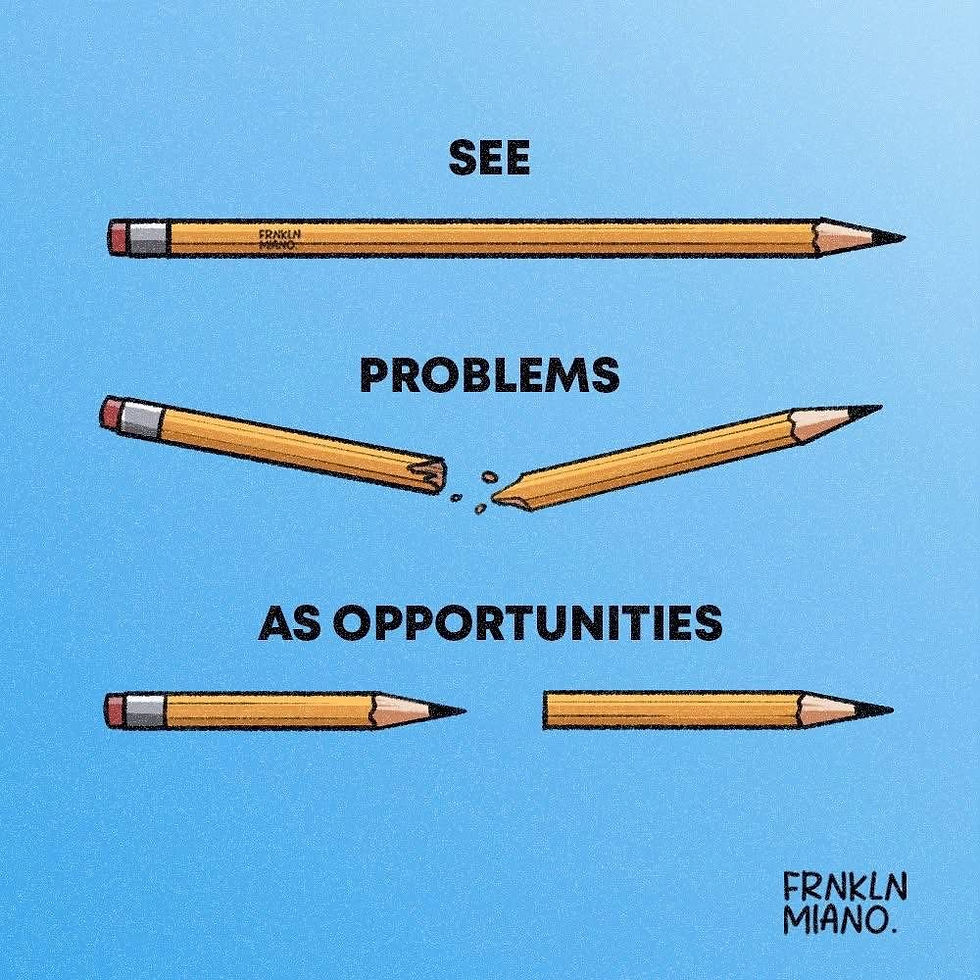There Is A Very Real Kind Of Grief In Accepting That Someone Won't Change
- centerpointhealingservices.com

- Sep 3, 2025
- 4 min read
Yes, there is a very real kind of grief in accepting that someone won’t change. It’s not the kind of grief tied to physical loss, but it can feel just as heavy. It’s the grief of letting go of the hope, expectations, or dreams you carried about who that person could be or how the relationship could look.
This grief often shows up in stages:
• Denial: “Maybe if I try harder, they’ll change.”
• Anger: “Why can’t they see how much this hurts?”
• Bargaining: “If I do this differently, maybe they’ll meet me halfway.”
• Sadness: “I have to accept that this isn’t going to happen.”
• Acceptance: “They are who they are, and I can choose how close I stand to that.”
Accepting that someone won’t change doesn’t mean you don’t care for them—it means you’re honoring your own peace and truth. Sometimes love looks like creating distance, redefining expectations, or letting go of what never was.
🌿 Let’s go deeper into the grief that comes with accepting someone who won’t change:
Why It Hurts
• Unmet expectations: You might have invested years of hope, effort, or love believing they would eventually see things differently.
• Loss of potential: It feels like you’re grieving not only who they are but who they could have been if they chose growth.
• Emotional investment: When you’ve poured your heart in, acceptance feels like letting a part of yourself go, too.
• The death of a dream: Whether it’s a healthier relationship, a better parent-child bond, or a more respectful friendship, that imagined version dies—and grief naturally follows.
Unlike mourning a physical death, this grief is more complicated because the person is still there. You might still interact with them, which can reopen wounds. This is sometimes called ambiguous loss—the person is physically present but emotionally or relationally absent in the way you hoped.
Ways to Work Through It
1. Allow the grief to exist: Don’t rush yourself into pretending you’re “fine.” Cry, journal, talk it through—naming it is healing.
2. Release control: Acknowledge that you can’t fix, rescue, or force someone into growth. Their change has to come from them.
3. Redefine boundaries: Sometimes acceptance means creating new terms for the relationship—closer, more distant, or even no contact.
4. Mourn the dream, not just the person: Write down what you had hoped for and gently let it go, as if you’re laying flowers on a grave.
5. Shift the focus back to you: What do you need now? What dreams, relationships, and growth can you pursue without waiting on them?
6. Find new meaning: Often, this grief teaches compassion, resilience, and clarity. It can open space for healthier, more reciprocal connections.
It’s important to remember: acceptance isn’t giving up—it’s choosing reality over illusion. And while that reality may hurt at first, it’s the first step toward freedom and peace.
🌸 Reiki can be a powerful support in working through the grief of accepting someone who won’t change. Since grief is not just emotional but also energetic, Reiki helps move and release what might otherwise stay stuck. Here’s how:
🌿 How Reiki Can Help with This Kind of Grief
1. Releases Held Emotions
• Grief often lingers in the heart chakra (sadness, disappointment) and solar plexus (loss of control). Reiki gently clears these blockages, allowing emotions to surface and move without overwhelming you.
2. Soothes the Nervous System
• When you face the reality of someone not changing, your body may stay in fight/flight—wanting to fix, convince, or protect. Reiki activates the parasympathetic system, bringing calm and grounding so you can respond with clarity instead of reaction.
3. Strengthens Boundaries
• Reiki can reinforce your energetic field, helping you accept their path without absorbing their energy. This makes it easier to love from a distance or step away without guilt.
4. Supports Heart Healing
• The heart chakra can hold both love and grief. Reiki nurtures this center, helping you transform the heaviness of grief into compassion—for them, and especially for yourself.
5. Encourages Surrender & Acceptance
• Reiki energy reminds us that healing doesn’t mean fixing others—it means aligning ourselves with peace. With regular practice, you’ll feel a deeper ability to let go of attachment to outcomes.
6. Guides You Back to Self
• Instead of pouring all your energy into hoping someone will change, Reiki helps redirect that energy inward—toward your own growth, joy, and sense of wholeness.
✨ Simple Reiki Practice for This Grief
• Place one hand over your heart and one over your solar plexus (just above the navel).
• Invite Reiki energy to flow.
• As you breathe, silently affirm:
“I release what is not mine to carry. I accept what I cannot change. I choose peace.”
• Stay for 5–10 minutes, letting the energy soothe and balance you.
Grieving the reality that someone will not change is a tender and courageous process. It asks you to release the weight of unmet hopes while still honoring the love and lessons shared. Reiki can be a gentle companion on this path, helping you soften the pain, restore your inner balance, and reconnect with your own light. Remember—acceptance is not giving up; it is choosing peace, protecting your heart, and making space for new growth. 🌿✨





Comments